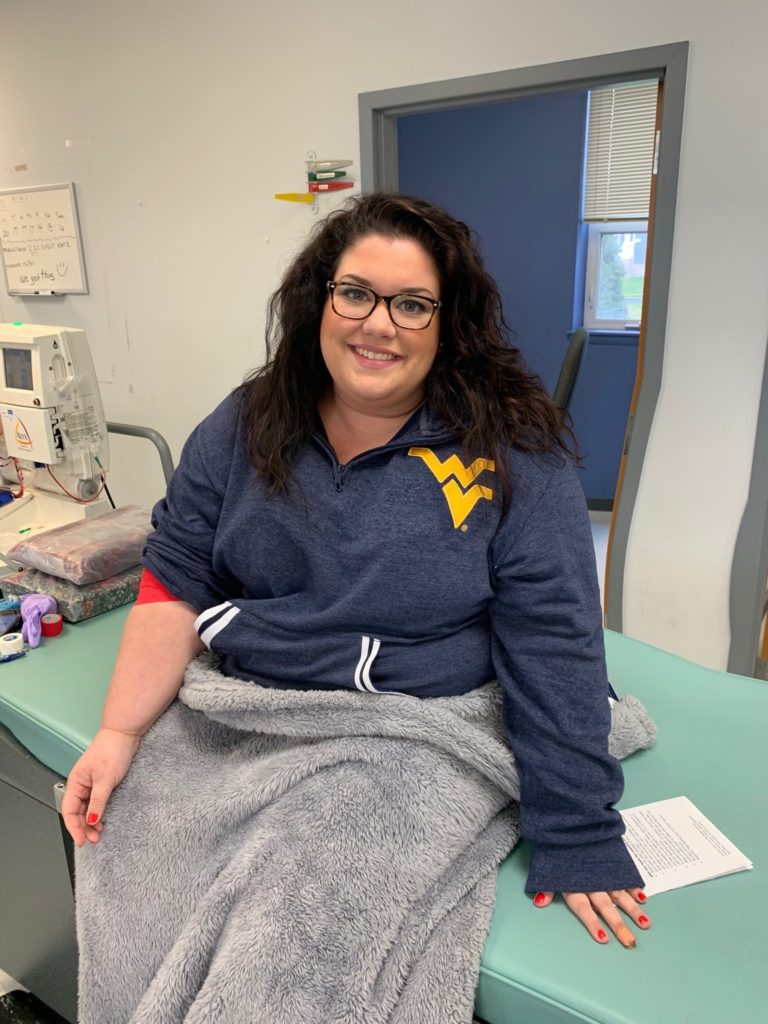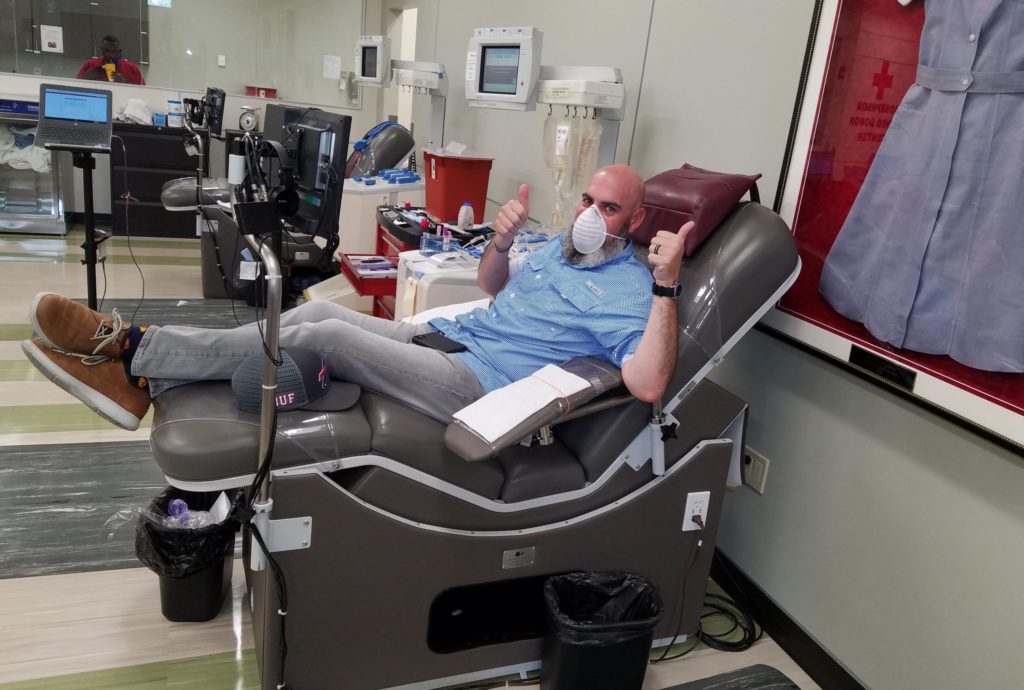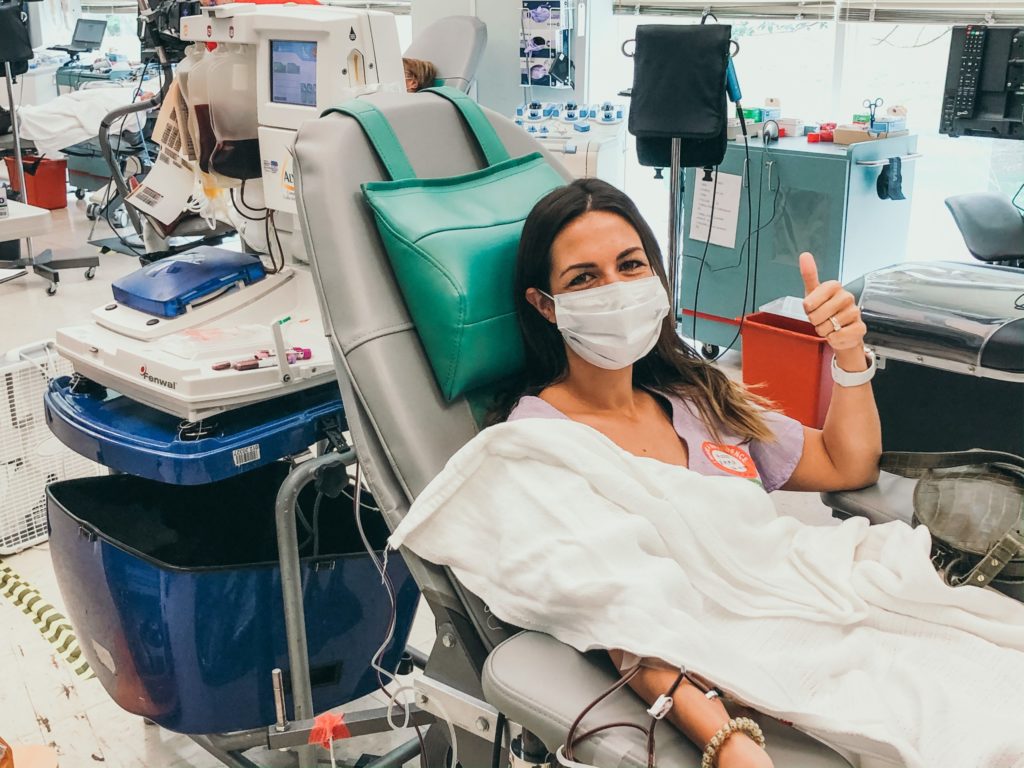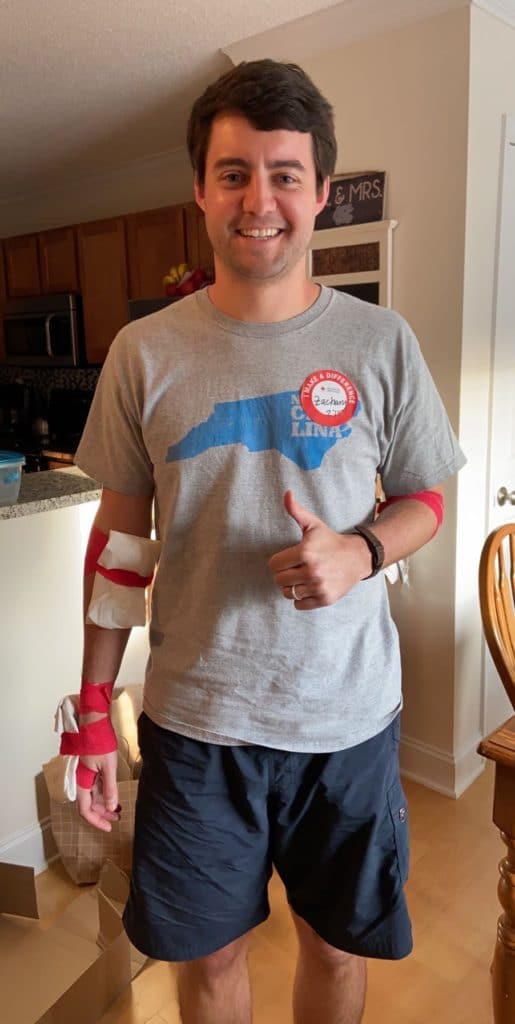More and more Americans are recovering from the coronavirus and seeking ways to help others that are in hospitals, isolated from loved ones and struggling to beat the virus. The good news is we may be able to help them share their good health with those in need by donating their plasma.
People who have fully recovered from the coronavirus may be able to donate convalescent plasma, which is rich in antibodies that can attack the virus and may help patients with life-threatening COVID-19 infections. We’ve worked with the U.S. Food and Drug Administration (FDA) and others in the blood industry to collect and share convalescent plasma with patients fighting the virus. So far, we’ve distributed hundreds of convalescent plasma products and hope to collect and process thousands more before this pandemic is over.
Check out the experiences of some of the generous donors who are making a difference during this unprecedented public health crisis.
Marisa Leuzzi
Marisa Leuzzi was the first Red Cross donor to participate in this program. Marisa tested positive for the coronavirus in mid-March and made her first convalescent plasma donation after it was confirmed she was symptom free for 14 days.
“As soon as I heard about this experimental treatment, I knew I had to do it. I immediately started looking (for) where I could donate,” said Marisa. She traveled from the suburbs of Philadelphia to Pennsauken, New Jersey, to make her donation at a Red Cross blood donation center.
“I had to put my fear aside because someone’s life depended on me doing this. It was super easy, the staff was great to work with and I was in and out in about two hours,” said Marisa. Within three days of making her plasma donation, Marisa was saving a life.
Marisa urges eligible individuals who have recovered from COVID-19 to give back, “Your plasma donation will make a difference and bring positivity and hope, which is what the world needs right now.”
Chris Cuevas
Chris Cuevas tested positive for COVID-19 in March, and as an active member of his community, Chris knew that once he was fully recovered, donating his plasma was just another way to serve others and have the chance to heal patients in need.
“I want to potentially save someone’s life,” said Chris. “There is no greater reason to donate my plasma, in my opinion.”
“I feel that there is no greater deed that can be done for others in need right now during this pandemic,” said Chris. “The plasma donation itself is very easy and comfortable, and the Red Cross staff goes above and beyond to take care of you from start to finish.”
Emma Milliard
Emma Milliard was uncertain of how she could help others in need as the number of cases and death tolls of patients that succumbed to the coronavirus continued to climb to staggering numbers. Fortunate enough to have fully recovered from this debilitating virus, her thoughts continued to be with the patients still suffering in hospitals without the contact of friends or family.
“I’ve felt desperately helpless, as many have, throughout this pandemic, to ease suffering. When I realized there was any chance at all that my antibodies could possibly help critically ill patients there was no question as to whether or not I would donate my plasma. It’s been the most rewarding thing I could possibly do.”
Zack Kaplan
Zack Kaplan started hearing about convalescent plasma donations happening in other parts of the country while he was sick, and immediately knew that it was something that he would be interested in pursuing if he had the opportunity. He was inspired by the countless nurses, doctors, and other medical professionals at Duke Hospital and across Durham that helped him while he was sick. Donating his plasma seemed like a great way to “pay it forward” to patients currently fighting the virus since there was no way he could repay the medical providers that were so helpful.
He has been an active blood donor since participating in his high school’s blood drive at 17 years old. In the 10 years following his first blood donation he’s donated 32 times, including one previous platelet/plasma donation.
“Not everyone who contracts this virus is fortunate enough to survive it, and not everyone who survives it is healthy enough to donate plasma. For those of us who recover and are healthy enough to donate, then, especially young people like me, a few hours of our time and a few needle sticks is a small price to pay to know that we played a small role in helping someone else recover from the virus, and help our community recover from this crisis.”
Samantha Price
Samantha Price is an emergency department technician from Farmington, New York, and describes her experience battling COVID-19 as emotionally and physically draining. From the moment her symptoms started she felt awful but counts herself lucky that her and her husband and son, who all eventually became ill, did not need a hospital to beat the virus. When all was said and done, she couldn’t wait to get back to work on the front lines in the ER and pursue the opportunity to help others by donating her convalescent plasma.
She gets emotional thinking about how something so negative and frightening like COVID-19 could turn out so powerful and positive. “It’s humbling, so humbling! Knowing that I could possibly save a life and help someone share another day with their loved ones makes me so happy! I would hope that someone would do the same for my family. I am looking forward to donating again in the future to help many others.”
Testing Convalescent Plasma Donations for COVID-19 Antibodies
We are now testing convalescent plasma for COVID-19 antibodies in collaboration with our partner, which will allow us to simplify the eligibility process and qualify more potential donors. It’s important to note that we won’t be testing the general public or routine blood donors for COVID-19 antibodies.
How to Donate Plasma if You’ve Recovered from COVID-19
- We are encouraging people who have fully recovered from this new coronavirus to donate convalescent plasma. Your donation may be able to help seriously ill coronavirus patients and aid in families’ suffering. To qualify, you must meet the following requirements:
- Be at least 17 years old and weigh 110 lbs. Additional weight requirements apply for donors age 18 or younger.
- Be in good health and generally feel well, even if being treated for a chronic condition. View blood donation eligibility FAQ.
- Be symptom-free and fully recovered from COVID-19.
If you meet the criteria above and are willing to help, please complete our Donor Request form. For additional information please visit http://www.redcrossblood.org/plasma4covid.





